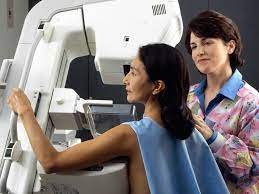Delving into the Dilemma
The Importance of Screening
Mammograms are widely recognized as a crucial tool in the early detection of breast cancer. However, there is often confusion surrounding the guidelines for older women, leading to questions about why seniors aren’t routinely advised to undergo mammographic screening.
Understanding the Guidelines
Age-Based Recommendations
Traditionally, mammogram guidelines have focused on women between the ages of 50 and 74, as this demographic has the highest incidence of breast cancer. While the risk of developing breast cancer increases with age, the efficacy of mammograms in older women has been a topic of debate among healthcare professionals.
Exploring the Risks and Benefits
Balancing Act
For older women, the decision to undergo mammographic screening involves weighing the potential benefits of early detection against the risks of overdiagnosis and overtreatment. As women age, their risk of developing slow-growing, non-life-threatening breast cancers increases, leading to concerns about unnecessary interventions.
Navigating the Recommendations
Individualized Approach
In recent years, there has been a shift towards personalized screening recommendations based on individual risk factors and health status. Rather than adopting a one-size-fits-all approach, healthcare providers are encouraged to engage in shared decision-making with their older patients to determine the most appropriate course of action.
Addressing the Knowledge Gap
Education and Awareness
One of the key reasons older women may not be routinely advised to undergo mammograms is a lack of awareness among both patients and healthcare providers about the potential benefits of screening in this age group. Bridging this knowledge gap is essential to ensuring that seniors receive the appropriate preventive care.
Shedding Light on the Subject
A Call to Action
While the debate surrounding mammographic screening in older women continues, it is clear that more research and education are needed to inform clinical practice. By empowering seniors with knowledge about breast cancer screening options, we can help ensure that they receive the care they deserve.




